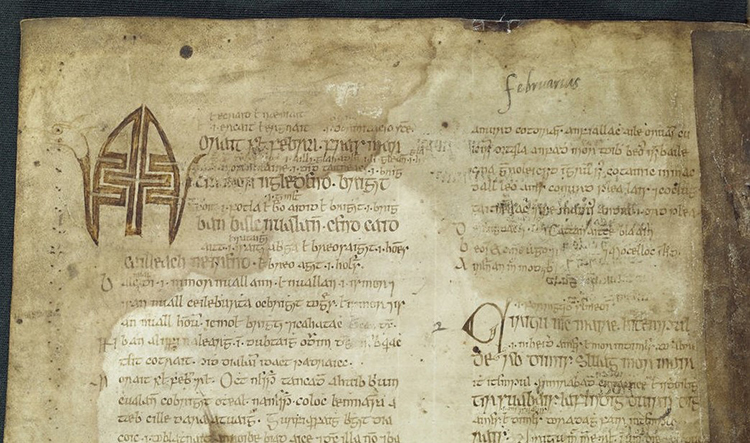St Brigid’s Day - Reclaiming the saint who stood against the patriarchal elitism of the early Middle Ages
Posted 1 February, 2024

The recasting of St Brigid (Brigit in Old Irish) as a pre-Christian goddess instead of the first Irish saint to be celebrated in writing risks forgetting how a woman was praised for overcoming the early middle ages’ entrenched systems of elite privilege and patriarchy.
(opens in a new window)In a new paper published in the journal ‘(opens in a new window)Proceedings of the Royal Irish Academy’ to mark the 1,500th anniversary of Brigit’s supposed death in 524, (opens in a new window)Associate Professor Elva Johnston, from the UCD School of History, explores how she has been treated differently to Irish male saints, and argues for reclaiming the radical historical Brigid who stood against a patriarchal elitist society.
The first Irish saint to be celebrated in detail by earlier Irish writers, Brigid of Kildare’s very existence has been cast in doubt – her remarkable story of championing ordinary people and pushing back against fifth century Ireland’s society has been overshadowed by later claims she is a christianisation of the Celtic goddess Brigid.
The paper reframes the approaches to the origins of Brigid and her popular cult by examining how the earliest writers understood her and made her real for their audiences through shaping her sanctity, her historicity, and her family relationships.
It is time for a revitalised appreciation of Brigit as an actual woman, writes (opens in a new window)@ElvaBJohnston in her article 'Making St Brigit real in the early middle ages' published (opens in a new window)#OpenAccess in 'Proceedings of the Royal Irish Academy'
— Royal Irish Academy (@RIAdawson) (opens in a new window)February 1, 2024
(opens in a new window)https://t.co/5orSHjCbFy(opens in a new window)#RIAjournals (opens in a new window)pic.twitter.com/wXOdq4uJuO
As the daughter of a slave, and expected to become one herself, Brigid defied the norm, becoming as powerful as any nobleman at the time while also intervening on behalf of those who lacked power.
Accounts of her engaging in basic manual tasks such as churning, described as women’s work, milking a cow, and cooking are in contrast to the characteristics of other saints who mainly interacted with the elite of Irish society.
One of her early biographers even describes Brigid declaring that the sons of kings are the sons of serpents and blood, except for a few elected by God.
According to the paper, forgetting Brigit the saint means forgetting a popular figure of early Ireland who stood up for ordinary people against injustice and against power wrongfully wielded, and the appreciation that the earliest Irish writers celebrated a woman who sought to overcome their society’s ingrained patriarchy and inequality.
By: David Kearns, Digital Journalist / Media Officer, UCD University Relations
To contact the UCD News & Content Team, email: newsdesk@ucd.ie






